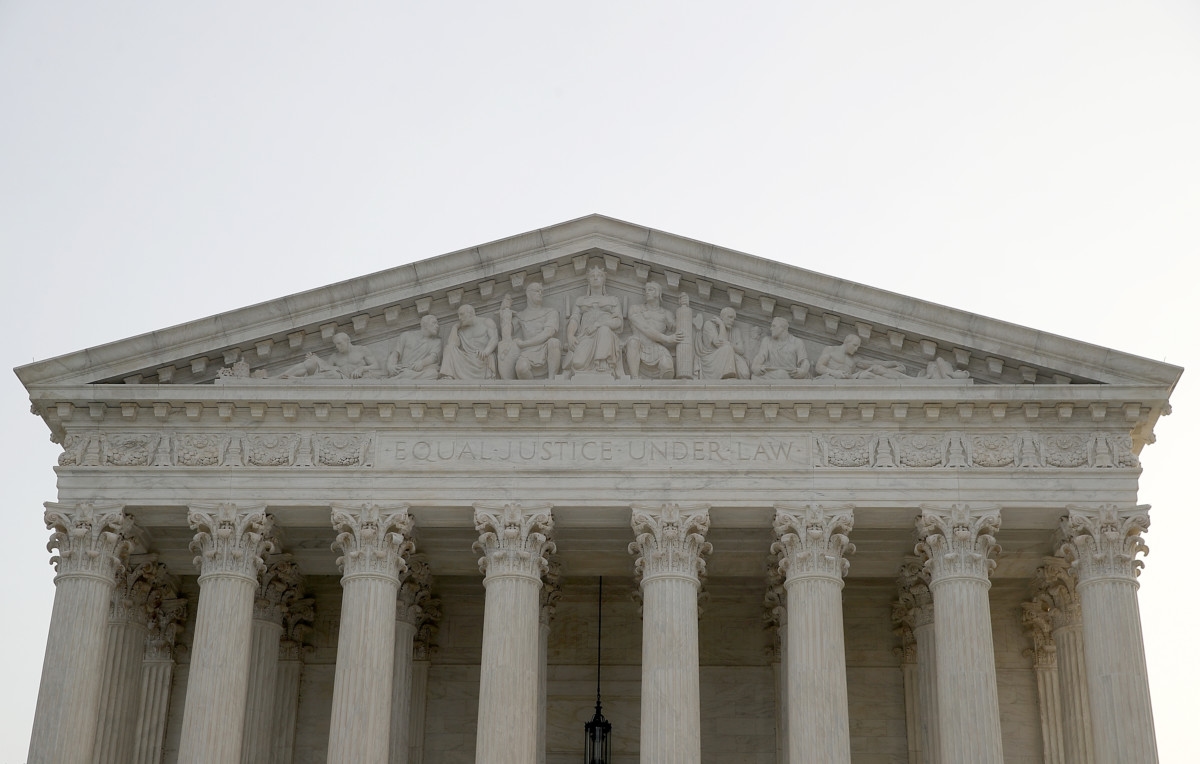Conservatives Lay Out Concerns About Supreme Court’s Internet Sales Tax Case

Conservative legal and economic experts said Monday that they’re worried about the potential effects if the Supreme Court rules in favor of South Dakota’s attempt to collect sales taxes from out-of-state companies.
The Supreme Court is set to hear arguments Tuesday from South Dakota, which seeks to upend a 1992 ruling that bars states from collecting sales taxes on out-of-state merchants. That case dealt with North Dakota’s ability to take sales taxes for mail-order catalog businesses operating beyond state lines. It preceded the rise of online retail that now plays a central role in legal questions over state sales taxes.
Panelists speaking at an event Monday hosted by the Heritage Foundation said that if the court favors South Dakota’s arguments, the decision could give states too much power in reaching beyond their borders to compel companies on regulatory and tax issues.
David Salmons, an attorney in the Washington offices of law firm Morgan, Lewis and Bockius LLP who focuses on constitutional and regulatory litigation, said Tuesday’s case could have significant implications for the Internet Tax Freedom Act, a 1998 law most recently extended in 2016 that relied heavily on the court’s findings in the 1992 North Dakota case. He said the Supreme Court has rejected previous attempts to overturn precedent on state sales tax collections based on the same reasoning that South Dakota has offered.
“Congress’ power in this area is not just theoretical,” Salmons said during the event. A finding for South Dakota, he added, “would be an end-run around Congress’ authority and would undermine Congress’ actions in this area.”
Attorneys for Morgan Lewis have represented President Donald Trump on personal and business tax matters.
Adam Michel, a tax and budget analyst at the Heritage Foundation, said during the discussion that if South Dakota and other states get their way, states and large businesses could “collude to keep startup competitors out of the market” by raising compliance burdens and in turn creating a market barrier to entry.
The case, South Dakota v. Wayfair, has drawn attention from state revenue collectors, Washington interest groups, federal lawmakers and the Trump administration.
In a March 5 amicus brief led by Solicitor General Noel Francisco, the Justice Department argued that the Supreme Court should make clear that “an out-of-state Internet retailer’s virtual presence within a State is a sufficient ground for requiring the retailer to collect sales or use taxes owed by its in-state customers.”
This article has been updated to note that Salmons is based out of Morgan Lewis' Washington offices.
Ryan Rainey previously worked at Morning Consult as a reporter covering finance.